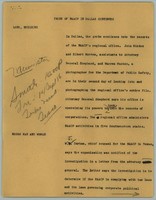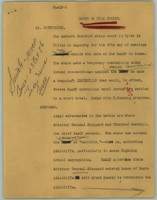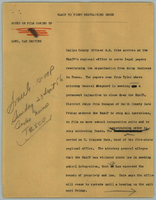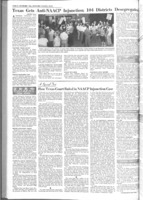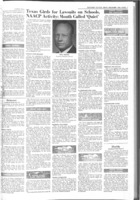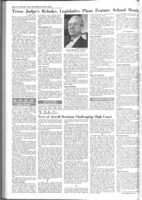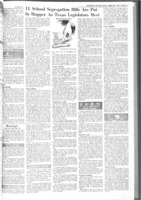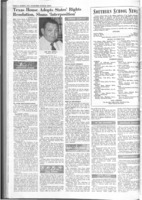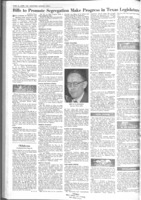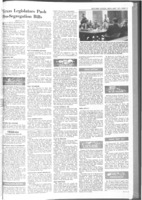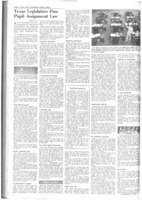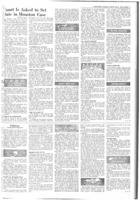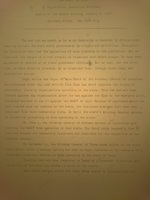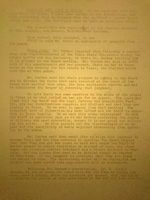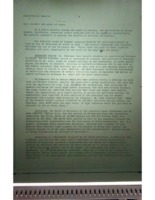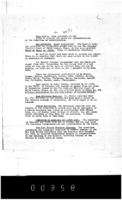Texas v. The NAACP
Two weeks after the excitement in Mansfield, the Texas government was fed up with the publicity the NAACP was bringing to the state. Governor Allan Shivers blamed the NAACP for the problems in Mansfield and Texas Attorney General John Ben Shepperd began investigating the Houston and Dallas branches of the organization. He gained a temporary restraining order, forcing all branches to cease operations. A case was formed against the organization on charges of barratry, or coercing plaintiffs for suits, and failure to pay the correct taxes as the state claimed they were a for-profit business.[1]
The case was taken to court in Tyler, Texas, in October, where prominent figures in the NAACP like Thurgood Marshall came to defend the organization. Marshall even went on to call the case "the greatest crisis" in the organization's history. The state sifted through more than 500 exhibits and 17 days’ worth of testimony, including a contract for $11,500 paid to Heman Sweatt. In the end, Dunagan continued with a temporary restraining order on the NAACP within the state. Not pleased with the outcome, Shepperd filed for a permanent injunction.[2]
Hearings began in December for the permanent injunction. During this time, Will Wilson was elected the Texas Attorney General and replaced Shepperd in the fight. The NAACP requested a change of venue but it was denied. The trial officially began April 29, 1957, and the state once more laid out once more charges of tax evasion and barratry. In May, Dunagan reached a decision and placed a permanent injunction on certain parts of the NAACP. He said the organization was barred from engaging in the practice of law or financing a suit in which they have no direct interest; engaging in political activities or in lobbying activities contrary to state law; soliciting lawsuits, either directly or indirectly; or hiring or paying any litigant to bring, maintain or prosecute a law suit. The NAACP counsel seemed content with this ruling. NAACP lawyer W.J. Durham later said, “Officers and committee members of the Texas conference are not seriously aggrieved by the judgment of the Tyler court. They feel they are not enjoined from any act they could have done lawfully under our charter before the Tyler suit.”[3]
The NAACP in Texas lived to fight another day.
[1] “NAACP Ouster Trial, College Integration Mark Texas Month,” Southern School News, 3. no. 4 (1956): 14. Accessed April 20, 2015. http://teva.contentdm.oclc.org/cdm/compoundobject/collection/p15138coll22/id/532/rec/3.
[2] “Texas Girds for Lawsuits on School, NAACP Activity; Month Called Quiet,” Southern School News, 3. no. 6 (1956): 11. Accessed April 20, 2015. http://teva.contentdm.oclc.org/cdm/compoundobject/collection/p15138coll22/id/566/rec/3.
[3] “Texas Legislators Pass Pupil Assignment Law,” Southern School News, 3. no. 12 (1957): 2. Accessed April 20, 2015. http://teva.contentdm.oclc.org/cdm/compoundobject/collection/p15138coll22/id/668/rec/3.
